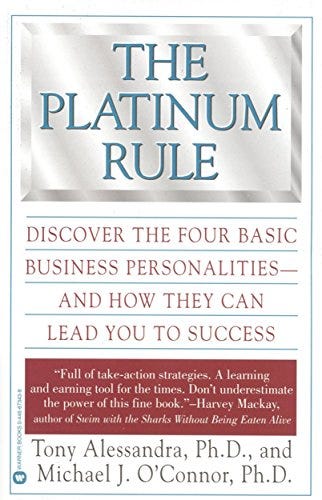ROC Weekly Management & Mindset Segment
The Top Three Must-Read Management Books to Get You in the Right Mindset for Your Rehab Center
If you are interested in gaining insight and getting into the right mindset to become more effective and successful, here are the top three management books to check out:
One Minute Manager
Ken Blanchard and Spencer Johnson
“One Minute Manager” outlines three one-minute tasks to help create a team that is motivated, happy, and effective:
One minute goals: Managers can create three goals to review in one minute or less. Most challenges in a business can be prevented or overcome with proper communication. By regularly meeting with your staff and clearly outlining your expectations, you can help determine what they are responsible for and prioritize their different tasks. Write specific targets each time and remind them you will follow up on their progress.
One minute praise: Spend one minute praising your employees' good work. This is most helpful when it is immediately after a good job and is specific to the instance. This helps encourage employees and can improve the overall morale of your workplace.
One minute reprimand or redirect: Just as one minute is enough to convey your praise effectively, you can also effectively express your disapproval in one minute. This is also most effective immediately after the action. Be sure to be specific in your feedback. To help maintain a positive relationship, you can also mention your appreciation for their effort.
The Platinum Rule: Discover the Four Basic Business Personalities and How They Can Lead You to Success
Tony Alessandra and Michael J. O’Connor
The authors premise this book on the idea that the golden rule may not always be the right approach, as it dictates that we treat others the way we like to be treated. Instead, the authors of this book argue you should follow the platinum rule: Do onto others as they’d like done onto them.
The key to this approach is to determine what makes people think, feel, and act in a certain way. You can do this by people watching and determining which of the four main personality types they have:
Directors: People with this personality type are typically forceful, open, competitive, decisive, and results-oriented.
Socializers: Socializers are known to be outgoing, creative, optimistic, collaborative, and gregarious.
Relaters: The characteristics of this personality type include genial, stable, timid, and eager to please.
Thinkers: Thinkers are typically self-controlled, logical, cautious, committed, analytical, and introspective.
Once you have determined each person’s personality type, you can approach them and their challenges accordingly. By learning how each personality type operates and their strengths and weaknesses, you can assign them tasks more effectively. This can also help you improve morale, increase motivation, and predict the actions of others.
Many of the challenges in life and business are a result of personality differences, so once you can identify them and change your approach to each, you are likely to have more success. The key is to approach, talk to, and handle people in the way they want to be handled.
These lessons can help you speak to others in “their language” and be more compatible while working together and interacting.
The Obstacle Is the Way: The Timeless Art of Turning Trials into Triumph
Ryan Holiday
“The Obstacle is the Way” posits that overcoming challenges and obstacles, whether they be physical, emotional, or mental, and turning them into opportunities and strengths is the key to success. To do this, you must let go of what you can’t control and focus on your opportunities to persevere.
The focus of the book follows a famous quote by Roman emperor Marcus Aurelius: “The impediment to action advances action. What stands in the way becomes the way.”
To overcome adversity and obstacles, there are three disciplines to follow:
Perception: This is how you view the world and your problems. In order to turn adversity into strength, you need to manage your perceptions.
Action: This involves taking action instead of hiding from your problems. You need to change the obstacle into actionable steps.
Will: Your will involves how you cultivate and maintain your inner being to conquer problems and difficulties.
Some of the key takeaways from the book include:
Blame: Instead of blaming others or circumstances, look for opportunities and the actions you can take to overcome your challenges.
Perception: You have the power to control your perceptions. This is the key to finding opportunities and controlling your reaction to challenges.
Being present: Focus on the current moment. It is the only place where you can make a change.
Action: Be deliberate and thoughtful in your actions. Action is more important than thoughts.
Failure: When you fail, reflect on what happened to determine how you can grow and avoid the situation in the future.
If you are interested in joining the ROC community, please complete this form for consideration: https://tinyurl.com/5btxe39z





